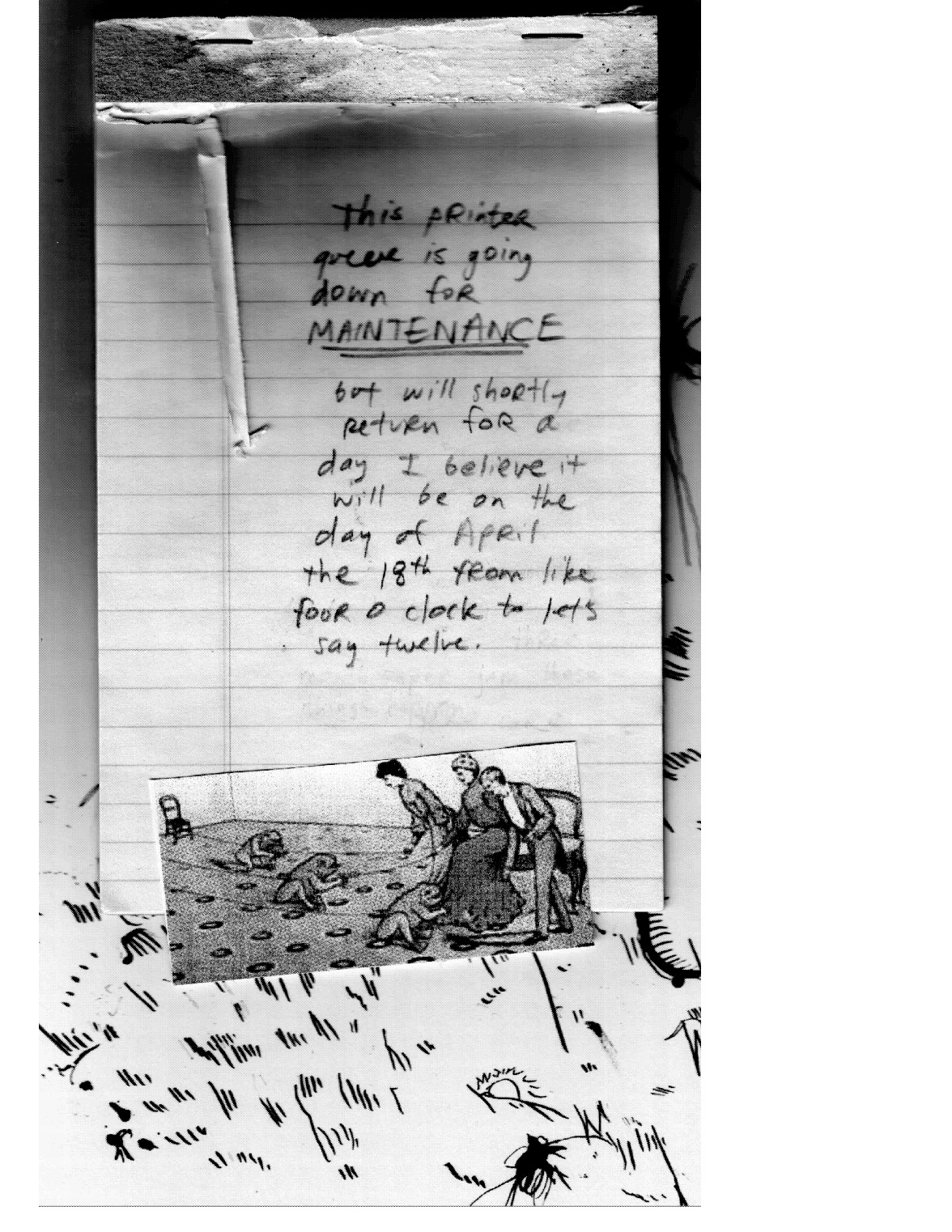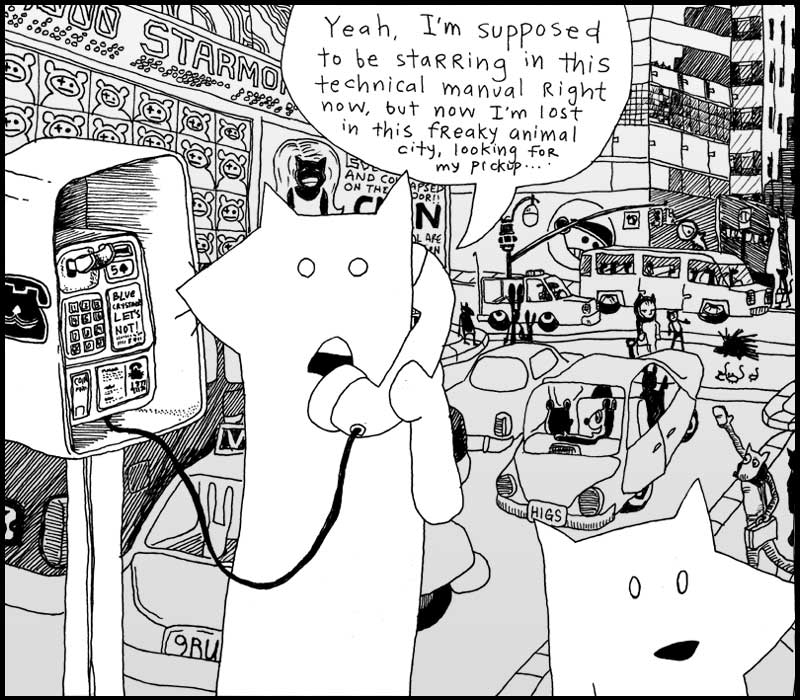_why and the Thankless Heart of Software
Published April 22, 2025
It was 1 PM, and I was sitting in a Turkish coffee shop by the Transamerica Pyramid when I first opened _why’s Printer Spool. The Spool (as I’ll abbreviate it) is an eighty-four page document composed of various scans, faxed at some point in 2013 to the printers of a number of recipients. Some of it is written in the style of a screenplay in monospace font, some of it is marker-scribbled hastily onto wide-ruled paper, while other pages are seemingly arbitrary diagrams and esoteric documents, adorned with handwritten annotations.

I had heard about The Spool in a podcast I listened to the other day, where the guest referred to it as an example of a timeless art piece that had emerged out of the tech scene. The creator — why the lucky stiff, or _why, as he went by online — was a notable Ruby programmer and writer of Ruby textbooks back in the early 2000s. _why had gained a loving cult following for the stylized manner in which he wrote his programming textbooks, often done with absurd, comic-like humor to explain programming concepts.

Then, _why suddenly committed “info suicide” on August 19, 2009: disappearing from the internet entirely, deleting his social media profiles, his website, and all the projects he had uploaded online. No one knew his reasoning, or what had happened to him, leaving the programming community with plenty of unanswered questions.
He only returned briefly a handful of years later, his second-coming in the form of a series of scanned documents, now labeled _why’s Printer Spool, sent to willing participants. Naturally, such a strange reappearance gained traction among sites like HackerNews, as well as other Ruby programming forums.
This was as much as I knew before I sought out the documents myself. While I was slightly self-conscious of the fact that I had never written a line of Ruby in my life, and I was peering into a community as an outsider with limited context, nonetheless I was enamored with the events, partially in the same way you find an easter egg in a video game or an ARG enormously entertaining. The kind of strange story that would consume your mind for a few days, which you would then try, and fail, to recount to your friend over the table at a coffee shop, who would smile and nod along out of pity.
But as I read more of these printer scans, I encountered what seemed to be part of the central idea of his work. _why seemed dissatisfied with code, and more broadly, technology as a medium. He mentioned reading a series of Kafka’s novels in a short timeframe, and experiencing a feeling of defeat: his own work would never live up to the timelessness of Kafka’s monumental writing.
“I was done. I was decimated. To program any more was pointless. My programs would never live as long as The Trial. A computer will never live as long as The Trial.”
When I was twenty-two, recently finished with university, software and technology seemed like the ultimate aspiration. It was the perfect compromise. I could bridge the gap between any disparate interests with computers as the glue, and the internet as my guide. I could even make a lot of money while pursuing fulfilling work — and I figured that the amount of cash that flowed into the industry was representative of the amount of good, the amount of importance that software held in the world.
So I tried very hard, and sat, day after day, in front of a variety of screens, amassing a variety of projects, speaking to smart, driven people, who were also interested in technology, also interested in making products that people want. I moved pixels around and typed lines of code. My vision grew worse. And that’s what I did for three years. It was only recently, in the midst of the absence of work, that I could begin to see some of the drawbacks with clarity. I found _why putting words to my own dissatisfaction, the silliness I felt when I ended the day, closed my computer screen and looked around my room, where nothing had changed.
"programming is rather thankless. u see your works become replaced by superior ones in a year. unable to run at all in a few more."
It was now almost 3 in the afternoon. I had finished _why’s documents and was now staring absently out the window towards the bus stop. Tech workers were streaming back to their offices, clad in buttoned shirts and down jackets and making hundreds of thousands a year. I felt embarrassed. Shouldn’t I be out there, contributing to something big, and useful? How important were my minor successes, really? Yet, I could not escape that there was something vaguely depressing about SaaS companies and expertly-designed landing pages and raising Series-A funding rounds. There was a spiritually empty place at the heart of software that I could not fill.
I left that coffee shop filled with the general sense that I wanted to create something with my hands. Something real that I could show my grandmother, and she would smile in genuine appreciation.